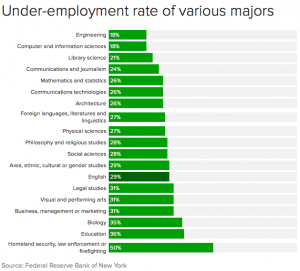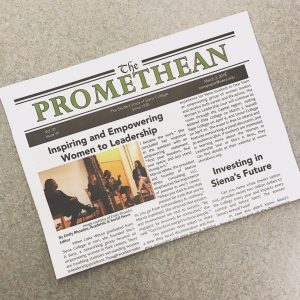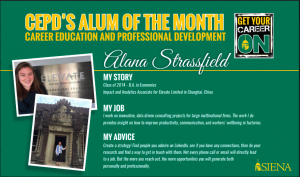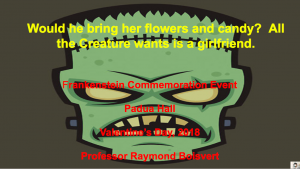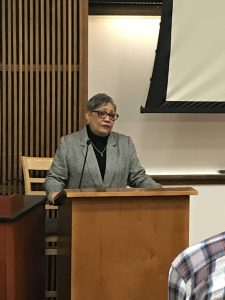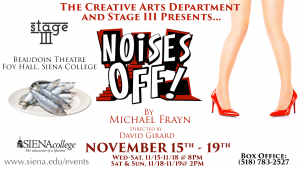With the spring semester looming on the horizon, the registration process kicks up a lot of questions about a student’s future. Most of the conversation involving registration brings up the question college students always hear: “What do you plan to do with your degree when you graduate?” The question, of course, is valid; it’s important for students to have a sense of direction when making big decisions about the future. So why pursue a liberal arts degree? 
Many students don’t know what exactly constitutes the broad category of “liberal arts” in college. Even up until I started working in the SoLA office, I wasn’t exactly sure of what fell under the umbrella of liberal arts. Most people get the basics – English, writing, creative arts – but don’t realize the broadness of the category itself. Liberal arts includes American studies, education, history, modern languages and classics, philosophy, political science, psychology, religious studies, social work, and sociology! So a liberal arts degree isn’t just for someone interested in studying Shakespeare or analyzing Plato; it can apply to hundreds of different career paths.
A liberal arts degree prepares its students with a number of soft and hard skills that are beneficial in the job market, including reading comprehension, analytical writing, and communication skills. Similarly, pursuing a liberal arts degree does not only mean taking English and philosophy classes; students are pushed to engage in a variety of topics, including math and sciences. A liberal arts degree does not teach one specific subject matter but a variety of them, making liberal students skilled and adaptable.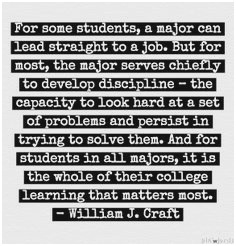
So what are some of your options as a liberal arts student? The first question I am asked when I tell people I’m an English major is always: “Are you going to teach?” This is not to dismiss teaching; being an educator is a valuable, fulfilling career path. However, popular belief is often that you can only teach with an English or history degree. Teaching is not the only option for liberal arts students. Students who focus in English or writing can pursue a career in writing/editing, as a sales manager, or as a communication specialist. Also beyond teaching, students can become involved in marketing communications, business analysis, public relations, copywriting, Human Resources, or sales representation. The opportunities are truly endless with a liberal arts degree.
To end on a positive note from The Muse, “don’t let today’s STEM-driven mindset get you down. No matter your major, the world is truly your oyster. Now go land a killer gig.”
